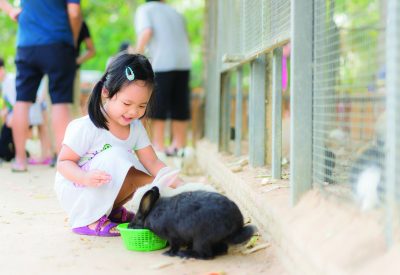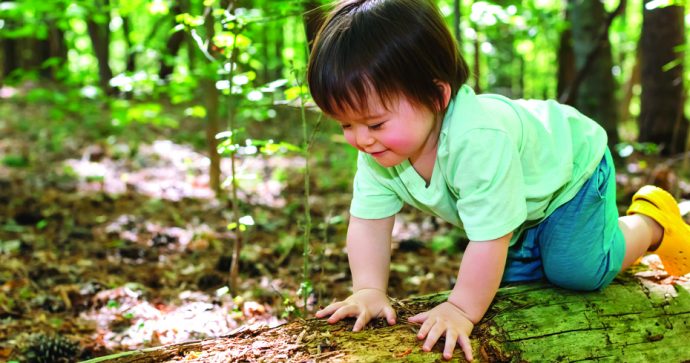Compared to our generation, today’s children face many substantial differences in upbringing, with the most obvious one being fewer chances for playing outdoors in natural environments.
Fears of disease-causing microorganisms have led to parents striving to maintain a sterile environment that is as germ-free as possible. While there is no denying that cleanliness and hygiene are important, there are some who have taken things too far in their quest to be hygienic. This will limit or inhibit a child’s chances of early exposure to a diverse range of ‘friendly’ microbes, which is necessary to train his immune system to react appropriately to stimuli.
Unfortunately, the term ‘microorganism’ is often associated with disease- causing germs and viruses, leading many to fear all microorganisms. Scientists suggested that the reduction in the diversity of the human microbiome (i.e. microorganisms living in the human body) has led to a rise of allergic diseases and this came to be known as the ‘hygiene hypothesis’.
Beneficial little helpers
Not all microorganisms cause disease – our gut is home to a large collection of microorganisms called gut microbiota. The gut accounts for approximately 80% of the entire immune system, and is the first line of defence against infections.
To build a more resilient immune system, the key is to retain a healthy balance of good vs bad bacteria (85% vs 15% respectively). Good bacteria form a barrier on the intestinal wall, thus denying harmful microorganisms the chance to breed. They also help modulate the immune system’s responses in how it responds to external threats, which is useful in minimising the risk of developing allergic diseases.
A stronger, more resilient immune system also allows your child to better enjoy the outdoors. You would have better peace of mind knowing that his immune system is strong enough and is continuously improving itself with every exposure.
Building a stronger gut
For an ideal start, opt for natural childbirth (as opposed to C-section) as the vaginal passage contains bacteria that helps kickstart your child’s gut microbiota, which is not colonised by any bacteria by default.
Don’t worry if you miss this, as there are still other things that you can do to help improve your child’s gut health, such as:
- Back to nature. Bring him to spend more time in natural environments (e.g. recreational parks, farm or forest). This allows increased exposure to more varieties of microorganisms, which helps prime his immune system, thus leading to a stronger body. The American Academy of Pediatricians (AAP) also recommends outdoor play as it provides children with the opportunity to improve their sensory skills and physical coordination.
- Play with pets. Let him keep pets. If this is not an option, bring him to petting zoos instead.

- Avoid antibiotics. Use only if his paediatrician prescribes it. Antibiotics do not work against viral illnesses.
- Balanced and healthy diet. Provide him with plenty of dietary fibres. These are needed to keep the gut healthy, such as legumes, whole grains, fruits, vegetables, etc.
- Eat foods rich in pre- and probiotics. Certain dietary fibres act as prebiotics, i.e. food for the good bacteria in the gut. Maintaining a healthy gut microbiota balance requires a regular intake of both pre- and probiotics.

Other things you should do on a daily basis include ensuring that he is physically active, gets enough sleep, and drinks enough water.
Don’t neglect hygiene
Lastly, make it a point to maintain cleanliness and hygiene without going overboard. The danger is when the idea behind the hygiene hypothesis is oversimplified and taken to extremes. Too much, or too little hygiene, is not recommended.
Outdoor exploration should be encouraged, provided the necessary precautions are taken. The two main points to keep in mind are that not all microorganisms are bad and that cleanliness and hygiene should still be practised.







Comments